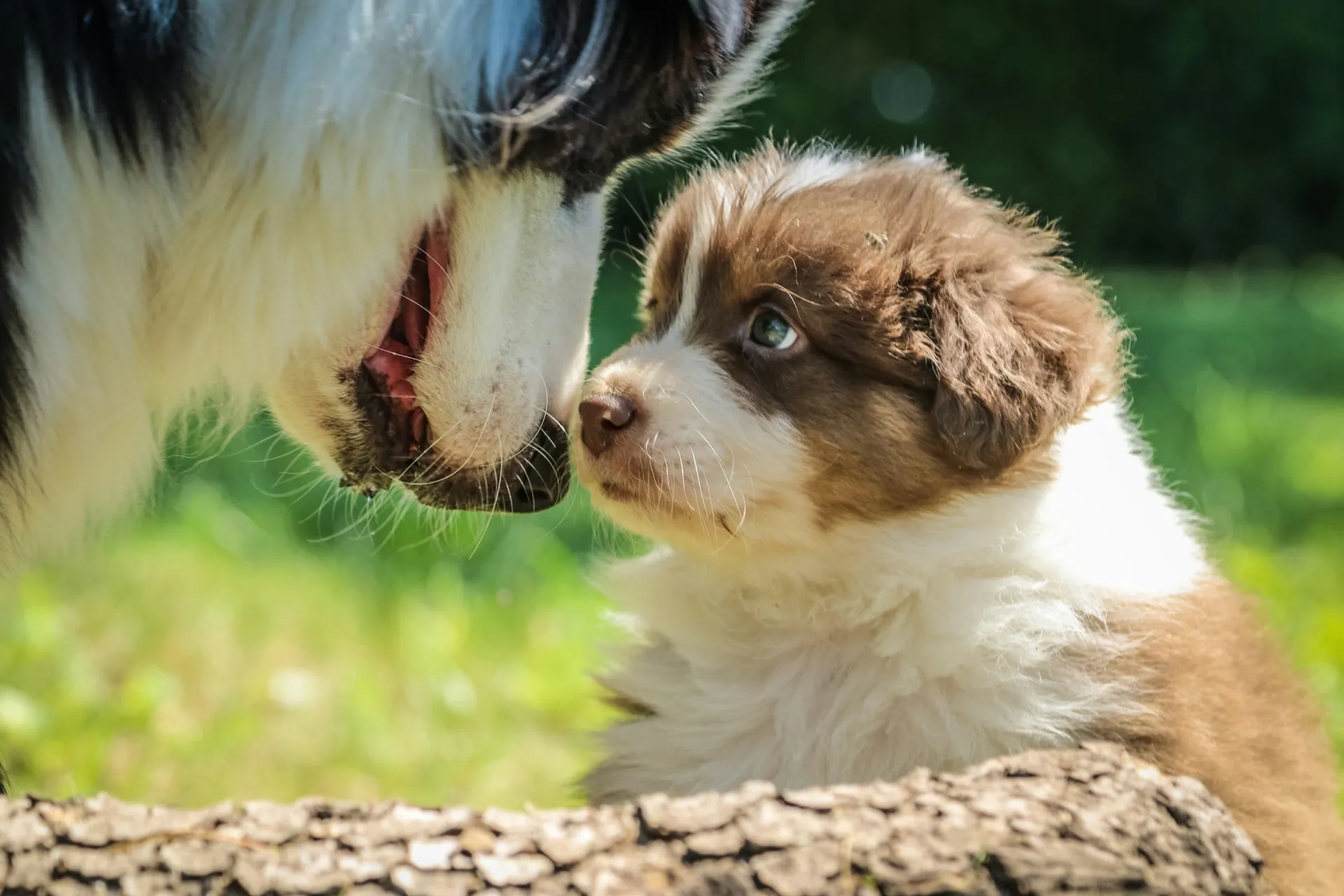
Welcoming a new puppy into your life is an unforgettable experience, but it comes with a lot of new things to learn — especially when it comes to training. One of the most important things you can do for your new best friend's long-term health and happiness is teaching them what puppy socialization is all about. This isn't just about playing with other dogs; the goal is to set your puppy up for a lifetime of confidence and comfort in all kinds of situations. We’ll walk you through what socialization really means, when it should happen and how to get it right.
Puppy socialization is the process of exposing your young dog to a wide variety of new sights, sounds, smells and experiences in a positive and controlled way. Think of it as building a library of positive interactions for your puppy. The more good experiences they have, the better equipped they’ll be to handle a new or surprising situation with ease.
Socialization isn't about teaching your puppy to love every single person and dog they meet. Instead, the goal is to raise a dog that is calm and unconcerned by the presence of new things, allowing them to be “politely indifferent” when not directly interacting.
When it comes to learning, a puppy’s brain is like a sponge. The primary socialization window for puppies is between three and sixteen weeks of age. During this time, their brains are uniquely primed to accept new experiences with curiosity rather than fear. After about sixteen weeks, this window begins to close, and puppies naturally become more cautious and wary of new things. While socialization can still happen after this period, it becomes a much slower and more difficult process.
“Puppies are like little scientists during this sensitive developmental period,” Dr. Aliya McCullough, Fetch’s on-staff veterinarian, says. “They are gathering information about the world around them and deciding what is safe and what is not.”
Your puppy’s health comes first, but if you wait until your pet is fully vaccinated (at sixteen to eighteen weeks), you may miss out on the most critical developmental window for socialization. The good news is you can still practice safe socialization during this time by choosing your locations and interactions carefully.
You can carry your puppy in public places like a pet-friendly store or sit with them in a quiet park, allowing them to see and hear the world from a safe distance. You can also arrange one-on-one playdates with a trusted, vaccinated and well-behaved adult dog in a private space like a backyard. One of the best options for socializing your puppy is a puppy socialization class, where puppies can explore their environment and each other under the watchful eyes of qualified professionals.




The goal of socializing your puppy is to create positive associations, not just to expose them to new things. To ensure an experience is positive, pair a new situation with something your puppy loves, like a high-value treat or a favorite toy. Your puppy should always have the choice to retreat from a new situation; forcing an interaction compromises their sense of safety and risks eroding the trust you’ve worked so hard to build with them.
A common mistake is "flooding," which means overwhelming a puppy with too much stimulation at once, like taking them to a crowded festival. A better approach is to introduce new things gradually, in a low-stress environment. Similarly, dog parks may seem like the perfect place for a new puppy to learn social skills, but they can be unpredictable and overwhelming. A safer approach is a positive, calm interaction with a vaccinated dog you know. Remember: quality is far more important than quantity when it comes to new experiences.
Even with the best planning, a scary moment can happen. If your puppy gets spooked, look for subtle signs of fear like a tucked tail, yawning, lip licking or a sudden refusal to take treats. The immediate priority is to increase the distance from the scary thing. (Don’t force them to "face their fear.") Calmly and cheerfully walk your puppy away until they are relaxed again. Once you’re at a safe distance where your puppy is comfortable, help them recover by doing something they enjoy, like playing a training game or scattering a few treats on the ground for them to find. Your calm demeanor shows them that you are not worried, which helps them feel safe.
"Socialization is a journey, not a perfect science. It’s normal for pet parents to feel overwhelmed or make mistakes. The most important thing is to read your puppy’s body language and remember that every experience, even a misstep, is an opportunity to learn and build a stronger bond," Dr. McCullough says. “And remember: if you hit a snag or find yourself getting frustrated, reach out to a reputable dog trainer or your vet for help.”
Here’s a week-by-week puppy socialization schedule to help you stay on track and ensure you’re providing the right kind of exposure. A helpful way to approach this is to aim for one new thing a day.
The Dig, Fetch Pet Insurance's expert-backed editorial, answers all of the questions you forget to ask your vet or are too embarrassed to ask at the dog park. We help make sure you and your best friend have more good days, but we’re there on bad days, too.

up to 90% of vet bills – covered.
Every 6 seconds, a pet parent gets a $1000+ vet bill. Care for your pet & your wallet with Fetch.
Get your price